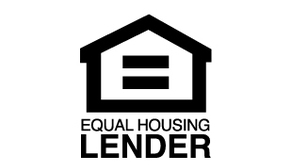Thanks to the countless reality tv shows about flipping houses, there is an entire generation of people who think they have the skills and expertise needed to renovate and sell homes for a profit.
Unfortunately, these kinds of tv shows can be fake and staged, and the ones that aren’t are being renovated by the best of the best contractors; in other words, it’s likely that the whole project is being undertaken by experts.
While you might be able to buy a house, do some minor repairs, and then sell it for a profit, the reality is that if you aren’t a professional contractor, you could end up losing money and lots of it.
This article will go over the pros and cons of buying a fixer-upper, and we’ll also look at what things an amateur handy-person can tackle and what’s better left to the experts.
Finally, we’ll give some insight into the things you should consider if you do decide to buy a fixer-upper.
Keep reading to learn what you can tackle and what you can’t when it comes to renovating and flipping a home so that you don’t get burnt on the resale.
What is a Fixer-Upper?
A fixer-upper is a home that requires extensive repairs that people buy with the intention of renovating and then selling for a quick profit.
In some cases, this can work, especially if you’re a builder, renovator, contractor, or have a similar skill set to those who work in these positions.
The idea is that you can spend a small amount of money on materials, save all of the money on the labor by doing the work yourself, and then make a considerable profit when it comes time to close on the house.
That said, those who are not mechanically inclined and who don’t have experience renovating houses often struggle with performing even minor renovations.
If you want to be successful when it comes to flipping houses, you need to have the basic skills required to do the labor yourself without outsourcing that task to another professional who’s going to cost you more money.
If you see a cheap house for sale that looks like it’s falling apart, then it’s not an ideal investment property.
However, there are houses that require minor renovations, which you can accomplish with minimal guidance, and those might be worth your time and effort if you can secure a significant profit at the end of the day.
What are the Pros and Cons of Buying a Fixer-Upper?
Pros
- Lower Purchase Price
A fixer-upper house is generally cheaper than purchasing a home that is ready for new tenants. This is generally the concept that allows buyers to be able to turn a fixer-upper house into an investment property. - Potential to Increase Value
The opportunity to greatly increase your initial investment in a fixer-upper is higher than with move-in-ready homes. As with any major purchase, know how much you can expect it will cost and whether that money will be returned when it’s time to resell. - Less Purchase Competition
It is less likely that you will end up in a bidding war with a fixer-upper home than with a turnkey home. A fixer-upper is often a riskier investment for buyers, so it’s possible to avoid the competition between eager buyers in a low inventory housing market.
Cons
- Difficult Budget Projection
Buying a fixer-upper can be an expensive process. Extra labor, upgraded materials, and other projects will drive your expenses up quickly, even if you have set budgets for renovations that are easy to go over when buying homes in need of some work. - Long-Term Investment
A fixer-upper house is a long-term investment. Renovating a fixer-upper home could take a year or longer. During this time, you either need to come to terms with living in a construction zone or renting another temporary home, depending on your situation. - High Costs Involved
Buying a fixer-upper home can be more expensive than you think, and that’s before costs even begin. There is no “standard” option for financing because no two remodels or renovations are the same. Even the best-laid plans seldom work out as expected, and it doesn’t take long for costs to build up.
Additional read: Should You Really Buy That Fixer-Upper?
Tips for Buying a Fixer-Upper
If you decide to buy a fixer-upper, the following tips and tricks should help you turn a profit. Keep an eye out for these five things before you close on a home that you know is going to be a fixer-upper in need of many repairs.
Decide What Updates You can DIY
If you have a particular set of skills, you can definitely look at projects that require those skills. For example, if you know how to install tiles, you may want to buy a property that requires new tiles because you know you can handle them.
You wouldn’t want to buy a property that requires a lot of drywall work unless you have experience in this area.
A good rule of thumb is only to buy fixer-uppers that require repairs that you have actual real-world experience with; this way, you aren’t leaving anything up to chance.
Check the Costs of Renovation Before You Make an Offer
Before you buy a fixer-upper property, make sure that you know exactly how much the project is going to cost you and how much you’ll be able to sell it for.
You need to consider the cost of materials for any tasks that you will be handling yourself, and you also need to know the cost of materials and labor for any repairs that you can’t tackle alone.
Once you know approximately how much the parts and labor will cost for all of the repairs, consult with an expert who can give you an idea about the possible post-reno listing price and ensure that there is enough potential profit to make the venture worth your while.
Verify Permit Costs
Remember, in addition to parts and labor, it may also be necessary to pay for a building permit or a renovation permit which can be rather expensive depending on the neighborhood the property is in and the municipal by-laws.
Forgetting these costs can be the difference between making a healthy profit and losing money; so, do your homework ahead of time and contact the local city ordinance office to inquire as to whether you need a permit, which permits you to need, and how much that’s all going to cost you.
Corroborate Cost of Financing
Unless you are paying the entire amount of the property upfront, you will need to finance the purchase of the home.
Financing options vary from lender to lender, but the cost can be quite high depending on your credit score and some other factors.
Again, similar to permits, forgetting to factor in the cost of financing can be the difference between making your money back and something extra versus losing money, along with wasting your time and energy on a losing deal.
Remember Inspection Contingencies
Last but not least, you need to pay for inspections whenever you buy a property, whenever you renovate the property and whenever you sell the place.
In addition to the cost of these inspections, you may also need to pay for additional renovations to bring the property up to code.
Remember, you are paying for an inspection; that doesn’t automatically mean you will pass the inspection.
If the inspector tells you that you need X, Y, Or Z additional renovations to bring the place up to code, then you could very well take a loss on the entire deal.
So do your research ahead of time, find out what the city’s building code requires, and factor the cost into your plan ahead of time, or you could end up in an unpleasant situation that you could have easily avoided.
Additional read: How Does a Home Inspection Contingency Affect the Homebuying Process?
Still Deciding if a Fixer-Upper Home is Right for You?
Many people flip homes for a living, and some of them do very well, but it isn’t for everyone.
Contrary to what reality television would have you believe, flipping fixer-uppers isn’t easy; it’s hard work that requires you to have numerous skills.
Even if you have the technical ability to renovate the property yourself, there is still no guarantee that you will make a profit or even break even on the investment.
That said, if you follow the advice given above, only take on properties requiring renovations that you do have the skills to perform yourself, factor in all of the miscellaneous costs that will arise, and remember to set aside funds for permit costs and inspections, you may very well be able to make a profit flipping homes and possibly even a very good one.
Before you invest your hard-earned money in a fixer-upper, be sure to consult an expert, and if you want to secure the best financing deal, then you should work with a trusted source for your financing like A and N Mortgage.
By working with a company like A and N, you’ll be able to save money on your home purchase by securing a fantastic rate that will give you a little breathing room in your budget.
A and N Mortgage Services Inc, a mortgage banker in Chicago, IL provides you with high-quality home loan programs, including FHA home loans, tailored to fit your unique situation with some of the most competitive rates in the nation. Whether you are a first-time homebuyer, relocating to a new job, or buying an investment property, our expert team will help you use your new mortgage as a smart financial tool.
Additional read: Avoid Big Financial Transactions During The Homebuying Process







